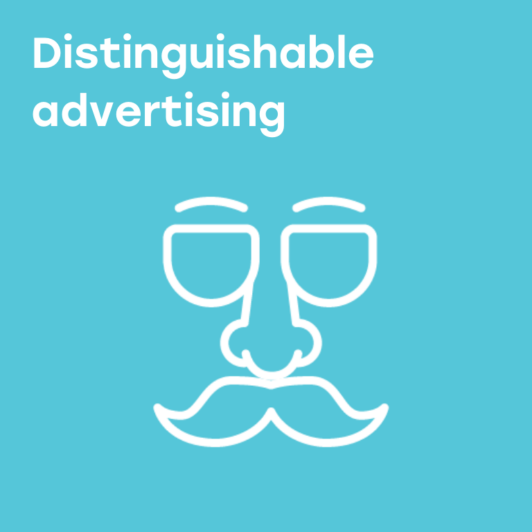Influencer marketing is under greater scrutiny than ever before, so it’s important for advertisers and influencers to understand the rules that apply when posting content on social media.
Under the AANA Code of Ethics, influencers must disclose any arrangement with a brand to help followers distinguish between advertising content and user generated content. The rules apply to both timeline posts and temporary content such as Instagram stories.
And remember, it’s not just where money changes hands – free products or services indicate a relationship that should be disclosed too.
Below are some easy ways to indicate that you have a relationship with a brand.
1. Use a hashtag.
Adding #Ad is an easy way to make it clear to followers that a post is advertising content, but you can also use #PaidPromotion, #sponsored, and #CommercialPartnership among others.
Remember that whatever hashtag you use, it needs to be clearly visible, so be careful not to bury or hide the hashtag.
2. Write it in the caption.
Disclosure can be as simple as writing that the post is part of a paid partnership (or other type of relationship) between the influencer and the brand. It doesn’t have to be complicated, just clear.
3. Say it.
Verbal disclosure is still disclosure so long as the message is clear and easy for the audience to understand. We encourage both advertisers and influencers to also add the disclosure in written form, especially for video content where viewers may not have their audio on.
4. Use the platform’s capabilities.
Platforms such as Instagram provide a ‘Paid Partnership with…’ label that can be attached to a timeline post to help audiences identify that a post is sponsored by an advertiser. There is also now an option to ‘collab’ with other Instagram users, where a post or reel features two accounts and is posted to the feeds of both accounts. To ensure clarity, a hashtag or other relevant indicator is still needed to indicate that the collab post is an ad.
5. Don’t plead #ignorance.
The advertising disclosure rules have been in place for over a year now, so not knowing the rules is not a valid excuse. Being known as an influencer that doesn’t follow the rules can be damaging to your reputation and the reputation of the brands you work with. If you’re unsure of the nature of your relationship with a brand, err on the side of caution and disclose the arrangement, whatever it is.
Need help?
Ad Standards is happy to provide support to advertisers and influencers who have questions about the rules or need some help navigating the advertising codes to ensure their content is compliant.
The Australian Influencer Marketing Council (AiMCO) also has some great resources for influencers which can be accessed here.

